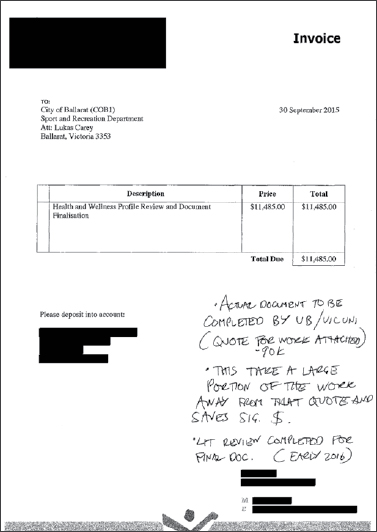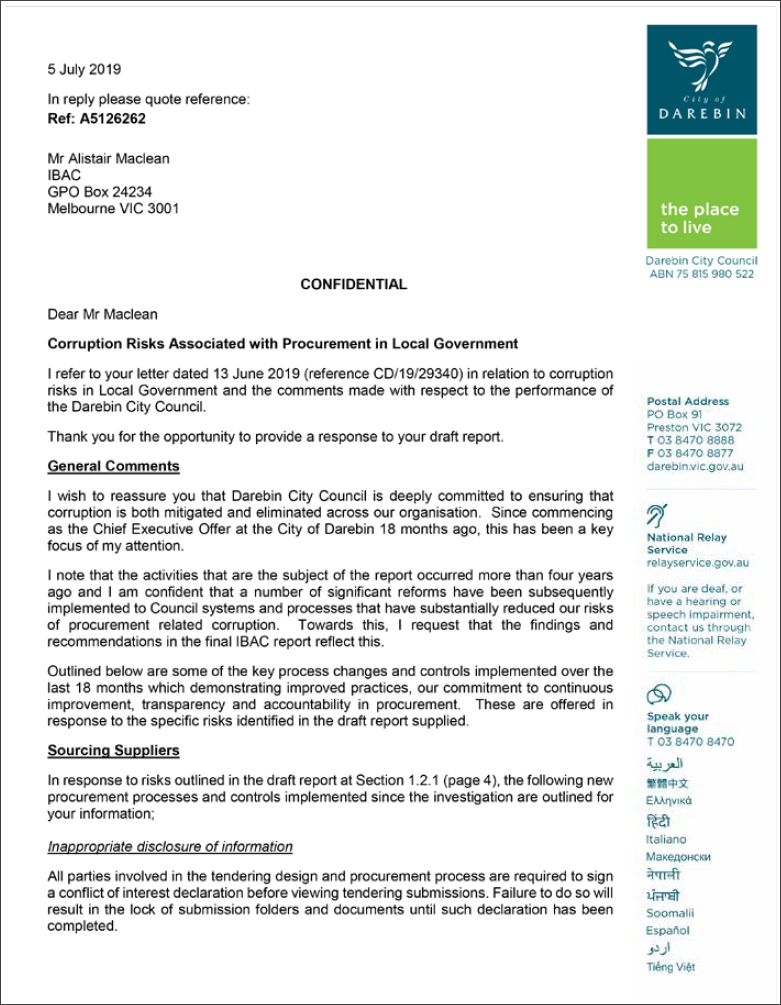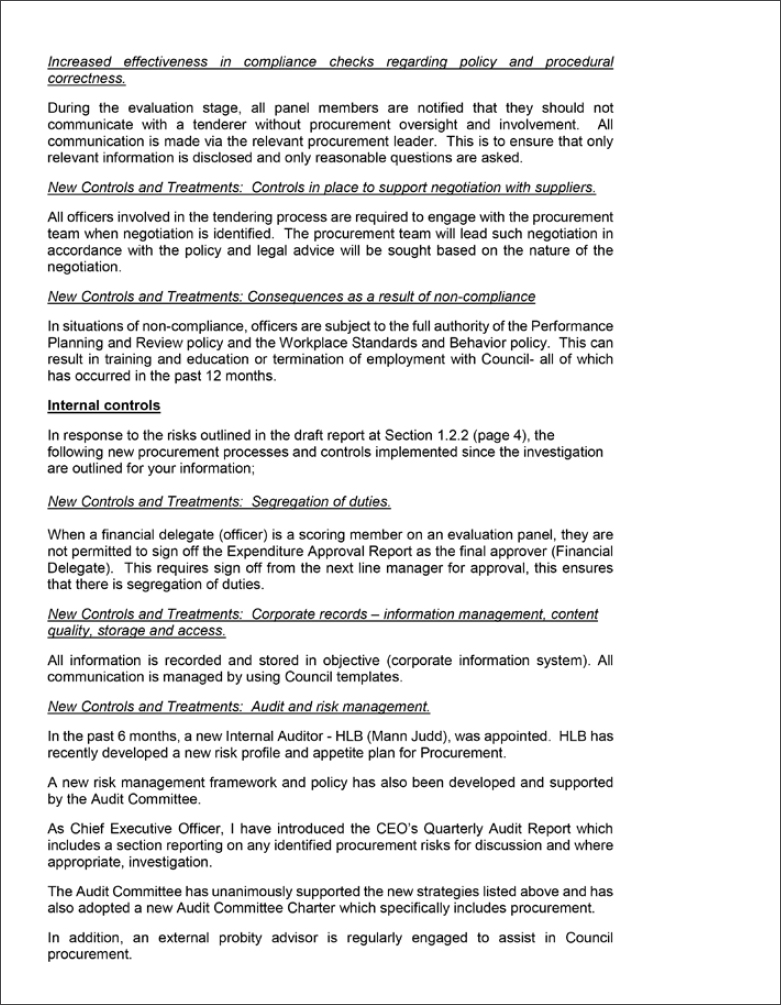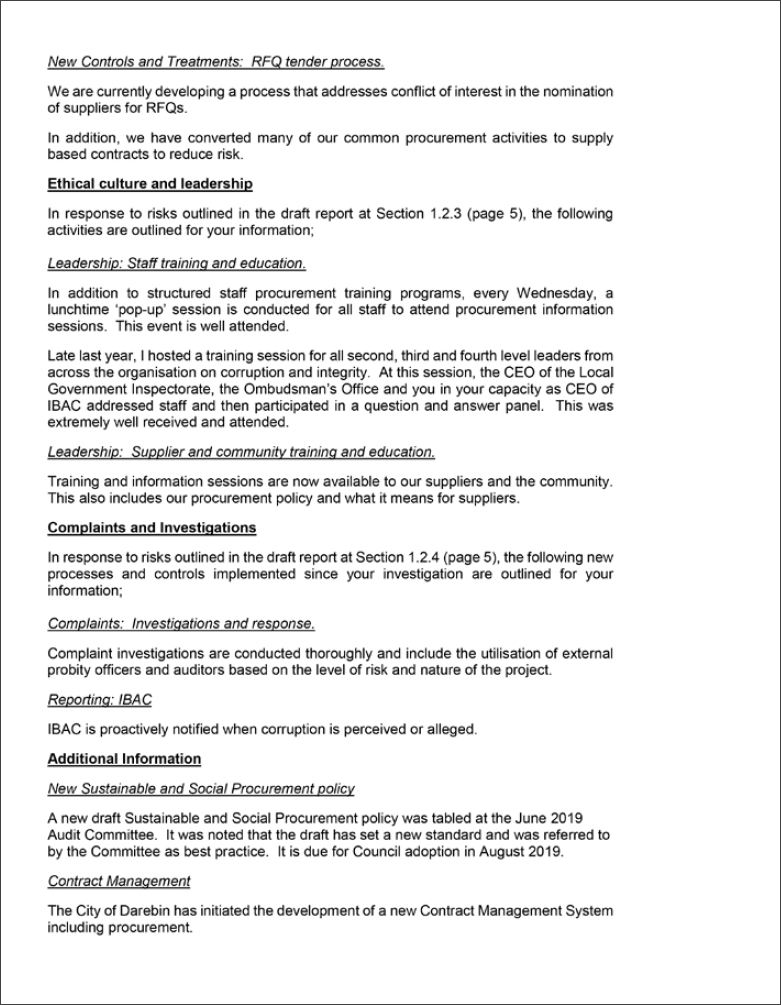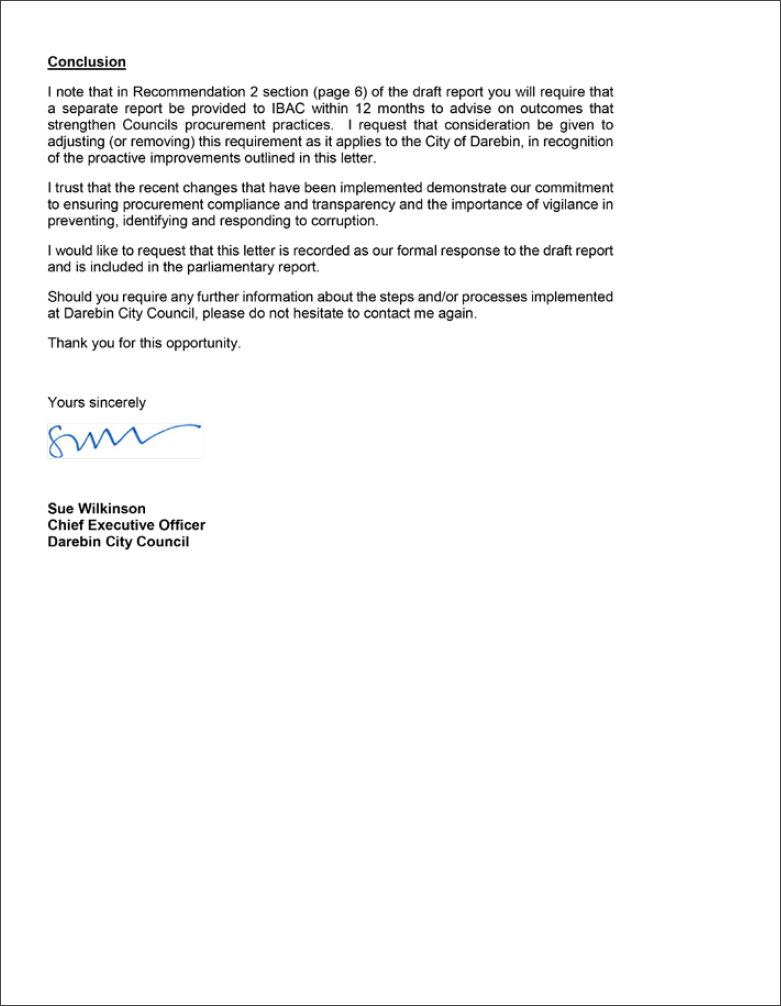To
The Honourable President of the Legislative Council
and
The Honourable Speaker of the Legislative Assembly
In accordance with section 162(1) of the Independent Broad-based Anti-corruption Commission Act 2011, I present IBAC’s report on corruption risks associated with procurement in local government: Operations Dorset, Royston and others.
IBAC’s findings and recommendations to date are contained in the report.
Yours sincerely

The Honourable Robert Redlich QC
Commissioner
Terms/definitions
| Acronym/definition | Explanation |
|---|---|
| Direct negotiations | Dealings between a council and a supplier without first undertaking a competitive process, for example when a single quote is required. |
| Primary and ordinary returns | Primary and ordinary returns record details of private interests held by a person. Under section 81 of the Local Government Act 1989, senior officers and any other employees nominated by the council’s Chief Executive Officer must lodge a primary return within 30 days of becoming a nominated officer, and an ordinary return biannually thereafter. Section 81 also sets out the information to be included in those returns. |
| Purchase order (PO) | A form of contract, which is an official document used to authorise and record the purchase of goods or services by a buyer. It is the prime reference confirming the contractual situation between the buyer and supplier. |
| CEO | Chief Executive Officer |
| CFO | Chief Financial Officer |
| IBAC | Independent Broad-based Anti-corruption Commission |
| MAV | Municipal Association of Victoria |
| LGV | Local Government Victoria |
| NSW ICAC | NSW Independent Commission Against Corruption |
| OHS | Occupational health and safety |
| RFT | Request for tender |
| VAGO | Victorian Auditor-General’s Office |
| VGPB | Victorian Government Purchasing Board |


